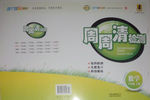One day Bob took two of his friends into the mountains. They put up their tents and then rode off to a forest to see how the trees were growing.
In the afternoon when they were about ten kilometres from their camp, it started to snow. More and more snow fell. Soon, Bob could hardly(几乎不) see his hands before his face. He could not find the road. Bob knew there were two roads. One road went to the camp, and the other went to his house. But all was white snow. Everything was the same. How could he take his friends back to the camp?
Bob had an idea. The horses! Let the horses take them back! But what would happen if the horses took the road to his house? That would be a trip of thirty-five kilometres in such cold weather! It was getting late. They rode on and on. At last the horses stopped. Where were they? No one of them could tell. Bob looked around. What was that under the tree? It was one of their tents!
1.Bob and his two friends went to the forest to _______________.
A. build their camp
B. find their way home
C. enjoy the mountains in the snow
D. watch the trees in the forest
2.They could not find their way back because _______________.
A. there was only one road to their camp
B. they couldn’t decide which of the two roads went to their tents
C. there were no roads in the mountains at all
D. the white snow covered everything
3.It is clear that they wanted the horses to take them to _______________.
A. Bob’s house B. the camp C. the forest D. the mountains
4.The horses stopped because _______________.
A. it was getting late
B. they were tired after running for a long way
C. they got to the camp
D. they saw Bob’s house
5.The story happened _______________.
A. on a cold winter day
B. on a dark snowy morning
C. in a cold camp far from villages
D. at night when nothing could be seen

 周周清检测系列答案
周周清检测系列答案 轻巧夺冠周测月考直通高考系列答案
轻巧夺冠周测月考直通高考系列答案